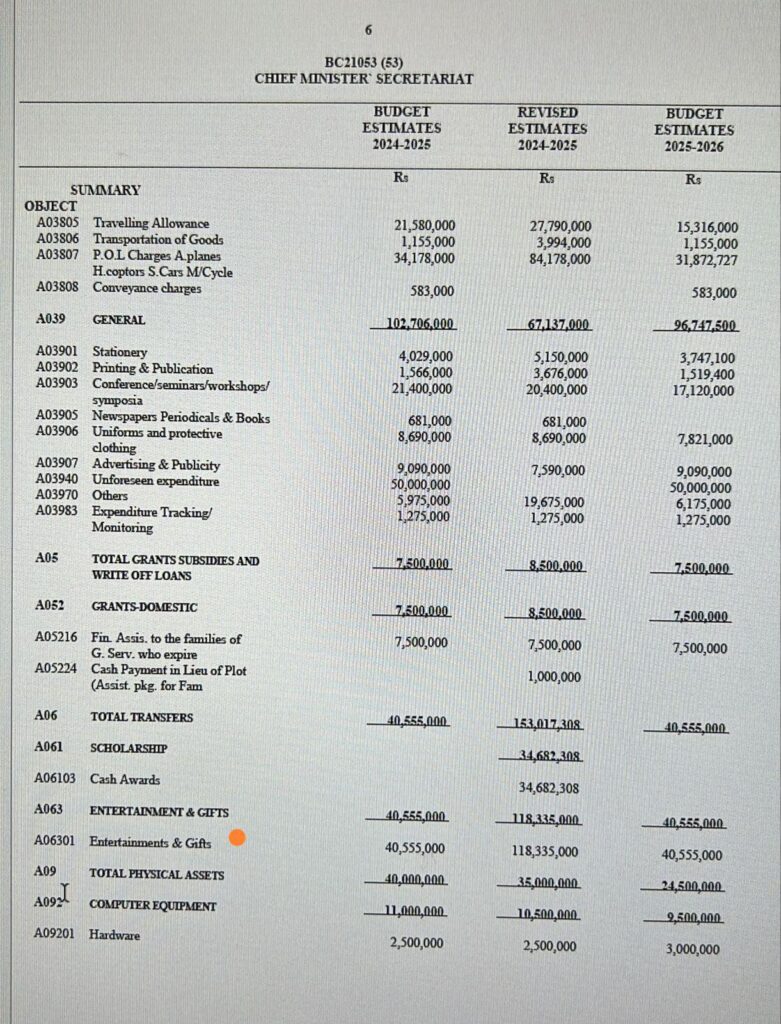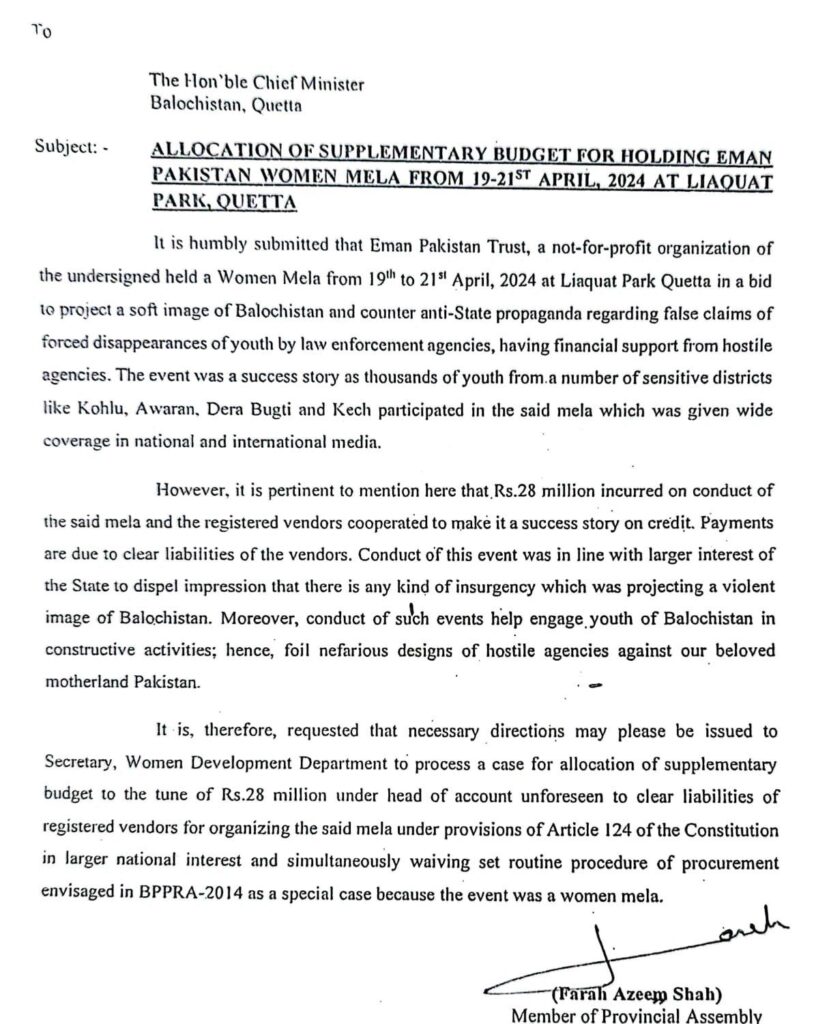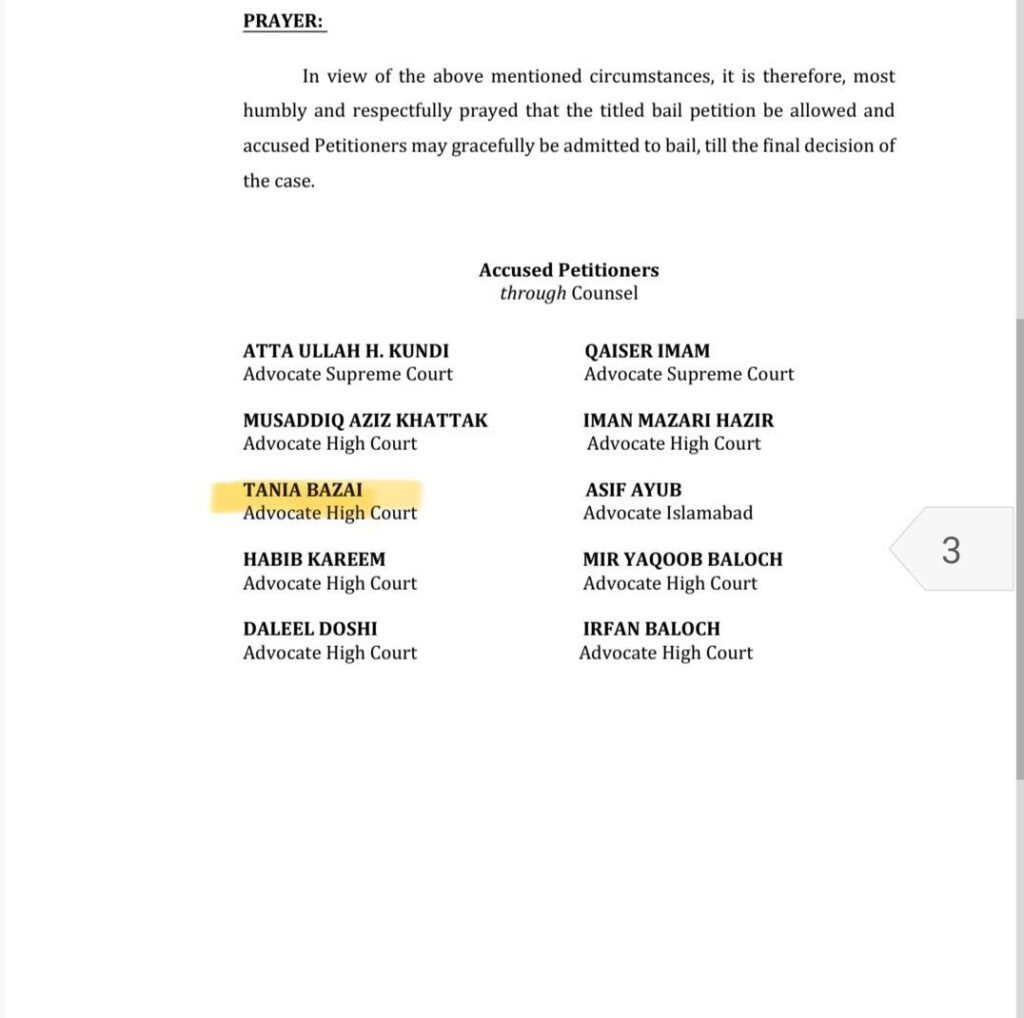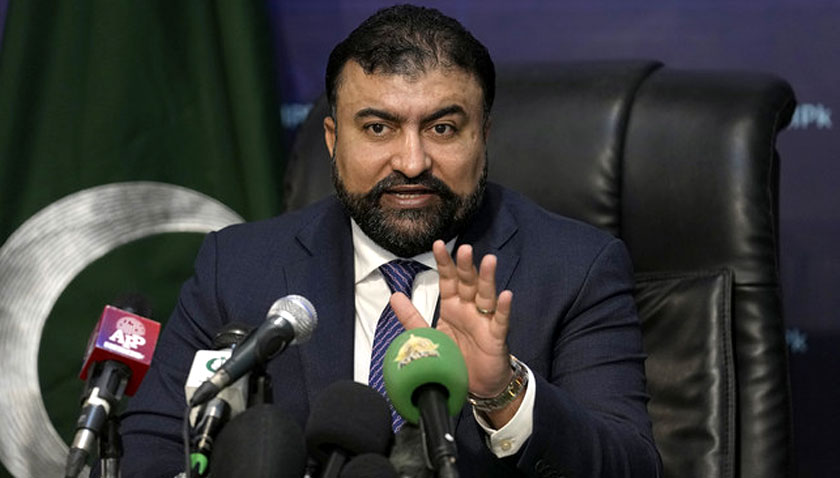The TNV Monitoring Desk
[Baloch journalist Kiyya Baloch reveals how figures like Tania Bazai and Babar Khajjak, as well as platforms like Buraq Digital, which were once vocal about Baloch rights, now lead state-sponsored disinformation campaigns targeting Baloch activists.]
The Balochistan government’s official records reveal that the Chief Minister Secretariat is spending ‘millions’ on entertainment, fuel, and digital propaganda, while ignoring basic health, education & public welfare.
Government of Balochistan has come under intense scrutiny after official budget documents from the Chief Minister’s Secretariat revealed that the Chief Minister’s Secretariat allocated millions of rupees toward fuel, entertainment, VIP travel, and workshops and conferences. At the same time, comparatively little was spent on public welfare, health, or education.

According to documents shared by exiled Baloch journalist Kiyya Baloch and made public on his X, the 2024–25 and 2025–26 budget estimates reveal an alarming increase in non-essential spending. In the revised budget for 2024–25, expenditure on entertainment, receptions, and gift items increased from Rs40 million to over Rs118 million. Meanwhile, travel and fuel costs, including those for helicopters and VIP aircraft, surged by 146%, from Rs34.1 million to Rs84.1 million.
In contrast, only Rs7.5 million was allocated for public grants and aid to families of martyrs, which raises serious questions about the government’s priorities in a province long plagued by poverty, underdevelopment, and insurgencies.
Digital propaganda network
The documents further reveal that the Chief Minister’s Secretariat employed over 40 individuals to manage a network of anonymous social media accounts. These accounts, often adopting Baloch surnames, are reportedly part of a digital propaganda campaign aimed at discrediting Baloch human rights activists, denying the existence of enforced disappearances, and framing Baloch political dissent as foreign-sponsored subversion.
Meanwhile, a budget of Rs21.4 million was initially allocated for seminars and conferences aimed at promoting government messaging. This amount was later revised down to Rs17.1 million. However, Kiyya Baloch, quoting anonymous sources familiar with the planning, revealed that these events were not intended for policy development. Instead, they were designed to enhance online propaganda, particularly on platforms where Baloch narratives are actively suppressed.
In a similar effort, former Balochistan government spokesperson Farah Azeem Shah organized a high-profile conference in April 2024 in Quetta, just one month after Sarfaraz Bugti assumed office as Chief Minister. Official documents shared by Baloch journalist showed that Shah requested a Rs28 million grant for the event, claiming its purpose was to project a “positive image of Balochistan” and counter what she described as “anti-state narratives,” including countering criticism over enforced disappearances.

The Balochistan government, for years, has drawn widespread criticism from rights activists, who say the focus on image-building and narrative control comes at the expense of addressing genuine grievances, such as the longstanding issue of missing persons, poverty, and underdevelopment in the province.
Analysts argue that this effort is not targeted at the Baloch population, who remain largely unaffected by such campaigns, but at the wider Pakistani public, particularly in Punjab, to frame Baloch grievances as the result of external interference.
Shift in allegiances
Prominent among the individuals linked to this propaganda campaign is Tania Bazai, a lawyer who once advocated for Baloch student rights and represented leaders of the Baloch Yakjehti Committee in the Islamabad High Court. Ms Bazai, who had previously criticized the military and the current Chief Minister, Sarfaraz Bugti, has since become a vocal supporter of the state’s narratives. Her apparent change in stance coincided with the appointment of her uncle, the renowned artist Jamal Shah, as a federal minister in the caretaker government in 2023, just before the national elections in Pakistan.

In the revised budget for 2024–25, expenditure on entertainment, receptions, and gift items increased from Rs40 million to over Rs118 million. Meanwhile, travel and fuel costs, including those for helicopters and VIP aircraft, surged by 146%, from PKR 34.1 million to Rs84.1 million.
Another figure, Babar Khajjak, a leader of the Tehreek-e-Jawanan Balochistan and a former hardline Islamist, has also undergone a significant transformation. Once a fierce critic of the army and federal policies in Balochistan, he is now closely aligned with the Pakistan Peoples Party (PPP) in the province and has publicly denounced the Baloch rights movement he once championed.
Both Bazai and Khajjak are known to appear on Buraq Digital, a pro-government media platform accused of spreading disinformation about the Baloch movement and the missing persons issue.
Critics demand transparency
Baloch rights activists and opposition voices have condemned the revelations, calling the government’s spending “morally bankrupt” and a sign of misplaced priorities in one of Pakistan’s most impoverished provinces.
“This is not just propaganda; it is a systematic attempt to erase genuine grievances,” said a leader of the opposition from provincial capital Quetta.
The Balochistan government has not yet issued an official response to the allegations.
